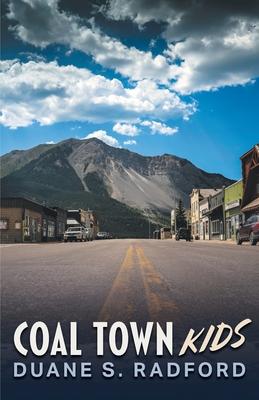
In the 1950s, the Pass was a hard place for people to make a living and most faced adversity, relying on their own resourcefulness to survive. The community itself was largely made up of immigrants from many different countries, some of whom were escaping their war-torn homelands. Despite the hardships of working in the mines, the Pass offered an idyllic lifestyle-one of outdoor adventures, clubs, social engagements, and excursions-built around a strong sense of community.
Though several people have contributed stories to the book, it is largely narrated by Duane as he follows his family's arrival to Bellevue after World War II, and his experiences living there until 1963, when his family moved to Calgary, Alberta. With not much written about the area, Coal Town Kids is the first substantive nonfiction account dealing with the Pass since 1952.
In the 1950s, the Pass was a hard place for people to make a living and most faced adversity, relying on their own resourcefulness to survive. The community itself was largely made up of immigrants from many different countries, some of whom were escaping their war-torn homelands. Despite the hardships of working in the mines, the Pass offered an idyllic lifestyle-one of outdoor adventures, clubs, social engagements, and excursions-built around a strong sense of community.
Though several people have contributed stories to the book, it is largely narrated by Duane as he follows his family's arrival to Bellevue after World War II, and his experiences living there until 1963, when his family moved to Calgary, Alberta. With not much written about the area, Coal Town Kids is the first substantive nonfiction account dealing with the Pass since 1952.
Paperback
$19.99